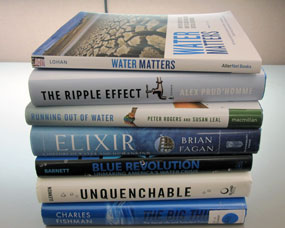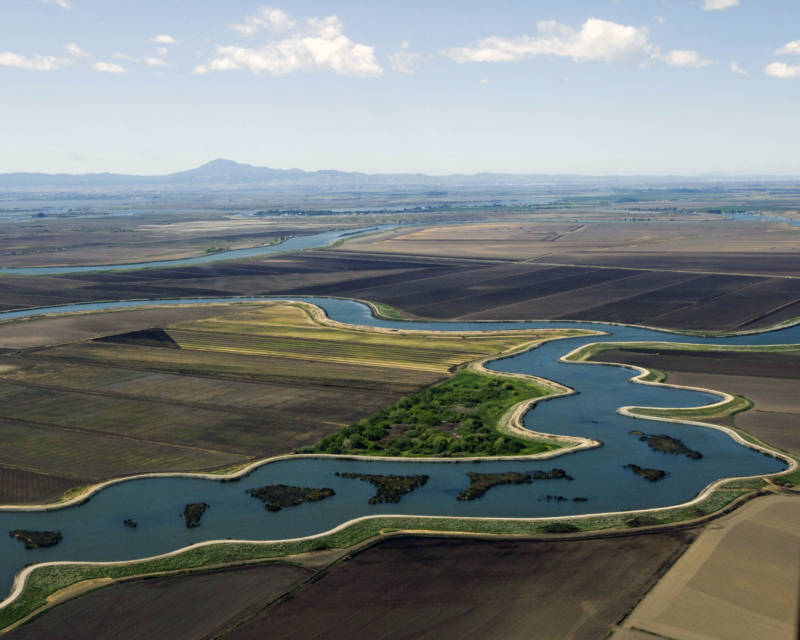Festive reading? Water fears are fueling a publishing frenzy

Blue is the new black. It’s not the latest fashion marketing campaign, but a realization about natural resources: water is the new oil.
Here’s a brief look at just a few that have drifted through our offices of late.
The Big Thirst: The Secret Life and Turbulent Future of Water, Charles Fishman
Fishman uses his reporting skills to weave narrative that takes us to some familiar places associated with water crises: Las Vegas, Austrialia and California. What makes this book different is the argument that there is plenty of water — we’re just not using it efficiently. He looks at “ancient” water trapped deep beneath the earth’s crust, and modern technologies developed to collect and filter rainwater. Like Prud’Homme, Fishman strives to change our relationship with water, like Michael Pollan has done with food.
Elixir: a History of Water and Humankind, Brian Fagan
Fagan breaks down the history of water into three eras: when water was scarce, when it was an abundant commodity, and a new era of scarcity that should prompt “humility, even reverence.” When water was scarce, people revered and nearly worshiped it. He compares ancient civilizations that mastered water (Ancient Romans) to those that didn’t (the Mayans). Then the industrial revolution made it an abundant and cheap commodity, exponentially expanding irrigated agriculture. Finally, the present era, with global population rising and aquifers diminishing, Fagan writes that “to solve the water crises of the future, we may need to adopt the water ethos of our ancestors.”
The Ripple Effect, Alex Prud’Homme

If Michael Pollan changed the way we think about food, then this author may change the way we think about water…or at least that’s what the book flap proclaims. Like other authors, Prud’Homme looks at the stresses on fresh water and infrastructure issues. But he also explores other, more philosophical issues, such as, is water a right like air or a commodity like oil? He delves into supply issues (will there be enough for all of us?), and takes a look at recent water conflicts in the Sacramento Delta, privatized water in drought-stricken Texas and Oklahoma, and water used for the controversial “fracking” process of drilling for natural gas.
Running Out of Water, Peter Rogers and Susan Leal
Expert and professor of city planning at Harvard, Rogers teams up with Leal, a former consultant to the San Francisco Public Utilities Commission, to show where the major stresses are on this vital resource. They also suggest ways in which local and federal officials can direct water use and plan for conservation into infrastructure. The authors emphasize technology that can recycle water, but argue that agriculture must improve (and reduce) the way it uses water.
Blue Revolution: Unmaking America’s Water Crisis, Cynthia Barnett
Examining the American disconnect with our most precious resource, Barnett argues that we don’t pay nearly enough (less than a penny a gallon) for the cost to pump clean water to our taps at home. To further the problem, most people can’t name the source of their local tap water, whether it’s an underground aquifer or a nearby river.
In her travels around the world, the author urges the need to add “local water” to the consciousness of Americans, and shows examples of water conservation from San Antonio, Texas to Singapore.
Water Matters: Why We Need to Act Now to Save Our Most Critical Resource, Tara Lohan, Editor
My personal favorite, this book of essays by influential writers and thinkers covers many of the same issues as the above books, but the paperback is beautifully designed with a multitude of color photographs, maps and infographics, and bullet points that outline the critical points. The book includes essays by Barbara Kingsolver, Bill McKibben and Tina Rosenberg, among others.
